Coordinator
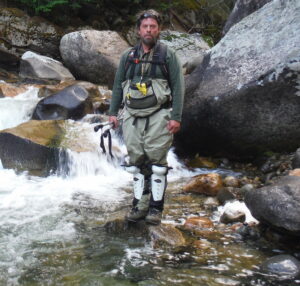 Chris Harkness transitioned into the role of coordinator of the Salmo Watershed Streamkeepers Society in 2022. Chris has been involved with the SWSS since 2009, working on various projects and sitting on the Board of Directors. He holds an Honours Bachelor of Science degree in Marine and Freshwater Biology from the University of Guelph.
Chris Harkness transitioned into the role of coordinator of the Salmo Watershed Streamkeepers Society in 2022. Chris has been involved with the SWSS since 2009, working on various projects and sitting on the Board of Directors. He holds an Honours Bachelor of Science degree in Marine and Freshwater Biology from the University of Guelph.
Since his early days of childhood, Chris has been drawn to the water and fascinated with the life within it. Playing in creeks or Lake Ontario in his neighbourhood in Kingston or spending time in the lakes and swamps in cottage country, he could be found chasing crayfish, frogs, turtles or fishing.
Chris brings a diverse set of work experience in aquatics to the organization. As an independent environmental consultant, he has worked on wetland and riparian restoration projects, fish salvages, fish population studies and aquatic plant inventories to name a few. As an aquatic invasive species specialist, Chris has primarily worked for non-profit and stewardship groups across the province including the Central Kootenay Invasive Species Society, the Columbia Shuswap Invasive Species Society, the Northwest Invasive Plant Committee and the Seymour Lake Stewardship Society. He has presented at workshops and provided training in aquatic invasive species monitoring for these organizations and others throughout the province.
Chris hopes to continue and build on the excellent work that has been accomplished by the Salmo Watershed Streamkeepers Society to date, strengthen existing partnerships and building new relationships throughout the watershed and beyond.
Special Projects Coordinator
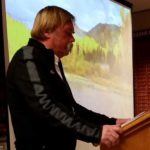 Gerry Nellestijn is a strong social science-based voice for the Salmo River, acting as its Coordinator since its inception in 1997. Gerry has significantly raised the profile of the Salmo River and brought important issues such as watershed planning, the decline of fish populations, and the impact of the historic mine tailings to the attention of the public and decision-makers. The Salmo Watershed Streamkeepers Society is regularly called on to comment on issues that impact the River and to provide insightful solutions and recommendations to improve the health and future of aquatic ecosystem health in the Salmo River watershed.
Gerry Nellestijn is a strong social science-based voice for the Salmo River, acting as its Coordinator since its inception in 1997. Gerry has significantly raised the profile of the Salmo River and brought important issues such as watershed planning, the decline of fish populations, and the impact of the historic mine tailings to the attention of the public and decision-makers. The Salmo Watershed Streamkeepers Society is regularly called on to comment on issues that impact the River and to provide insightful solutions and recommendations to improve the health and future of aquatic ecosystem health in the Salmo River watershed.
Gerry earned an anthropology degree at the University of Western Ontario. He also completed a post-graduate Environmental Management program at the University of Calgary in Alberta.
Gerry’s compelling leadership and collaborative approach has brought excellent results to the Salmo River through networking and partnerships with key players throughout the watershed and region. Gerry has sat on a number advisory committees including the Upper Columbia White Sturgeon Recovery Initiative and Michelle Mungall’s (MLA, Nelson-Creston) Columbia River Treaty Advisory Committee.
He believes the Columbia River Treaty is “the single most important opportunity we will have in our lifetime to make real Environmental change”.
He continues to give a message of Stewardship Ethics, Principles and Values to community everywhere.
Learn more here.
Board of Directors
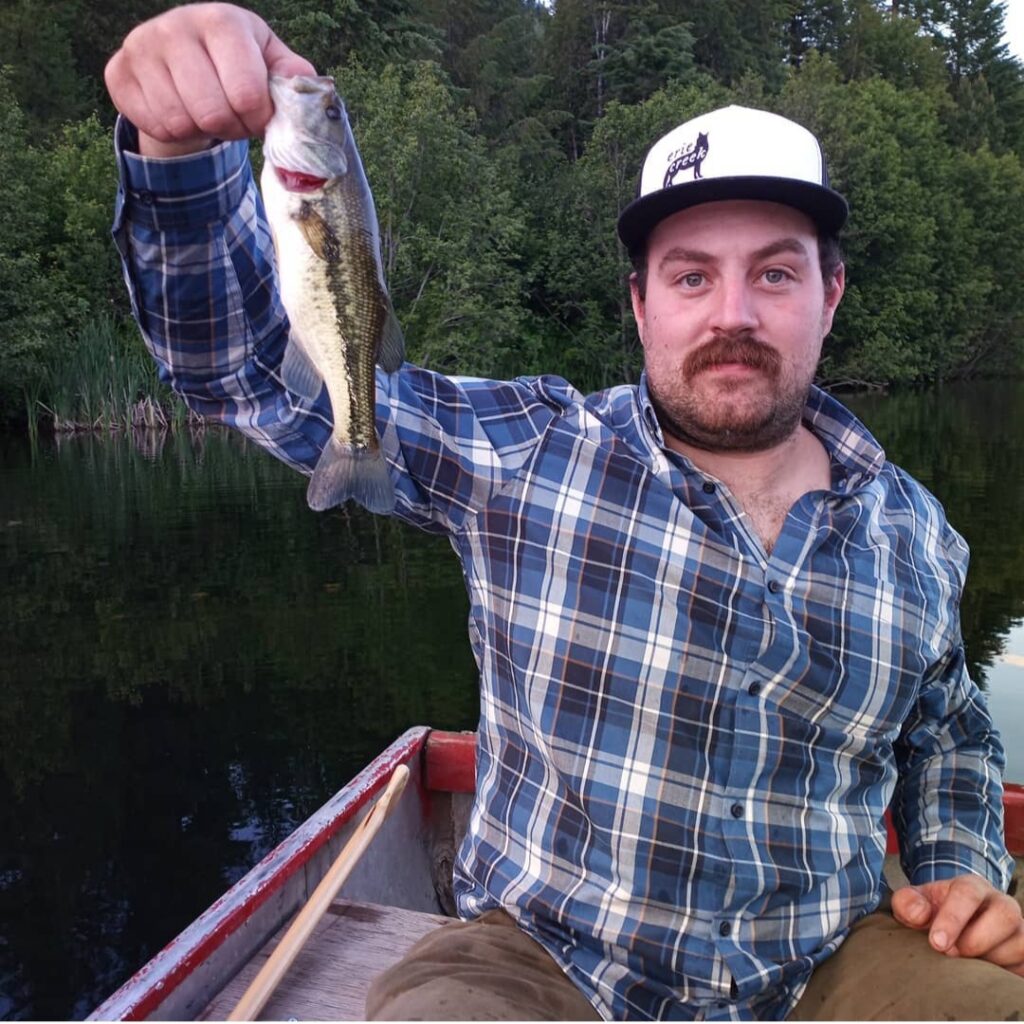 Austin Anderson is an avid angler, hunter and trapper who is a member of many conservation based organizations. Heavy equipment operator by trade with experience in heavy earth moving, forestry, reclamation and silviculture. Austin is also the owner of a small foresty bussiness in the Salmo River Watershed specializing in selective forestry and sustainable forest products for the people of Salmo and Ymir. From stream bank stabilization projects, replacing culverts with bridges to improve fish passage and working with environmental managers as a trapper to aid in data collection, protect threatened species and remove invasive species, Austin has been involved in many environmental projects. With a background in heavy equipment, project management and as a consumptive user of wildlife and natural resources Austin is excited to work with the Salmo River Streamkeepers to conserve and ensure future sustainability of the watershed and wildlife.
Austin Anderson is an avid angler, hunter and trapper who is a member of many conservation based organizations. Heavy equipment operator by trade with experience in heavy earth moving, forestry, reclamation and silviculture. Austin is also the owner of a small foresty bussiness in the Salmo River Watershed specializing in selective forestry and sustainable forest products for the people of Salmo and Ymir. From stream bank stabilization projects, replacing culverts with bridges to improve fish passage and working with environmental managers as a trapper to aid in data collection, protect threatened species and remove invasive species, Austin has been involved in many environmental projects. With a background in heavy equipment, project management and as a consumptive user of wildlife and natural resources Austin is excited to work with the Salmo River Streamkeepers to conserve and ensure future sustainability of the watershed and wildlife.
Mark Bennett Bio and photo to come.
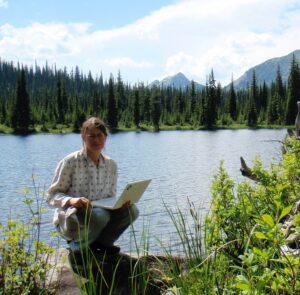 Alice Nellestijn has been an active and willing volunteer for the SWSS since it became a non-profit, charitable society in 1998.
Alice Nellestijn has been an active and willing volunteer for the SWSS since it became a non-profit, charitable society in 1998.
Ever since I was a child growing up in rural Alberta, I have loved nature, especially forests and water. In 1975, I attended a 4H Conservation Camp where we teenagers learned about the concern for the destruction of our common resources: air, water, soil, plant and animal life. We were shown that instead of the constant destruction of resources, we should work toward providing the necessary controls and preservation opportunities to ensure that our great resources would not be lost. The program sponsors felt that by providing an opportunity to learn about conservation awareness, that we would adopt conservation as a way of life. In doing so, we would develop a thought process and concern for the future; for me, it has indeed been the result!
Becoming a Streamkeeper has provided a bounty of opportunities: to connect and learn about the Salmo River, it’s inhabitants, our Watershed and beyond. I have participated in the ongoing research and monitoring, received Streamkeeper and other training opportunities, learned about the community of species, including people, that live in the Salmo River Watershed and what we all need to live well. I have used my skill set to support the multi-faceted opportunities and events that have been promoted by SWSS.
As a SWSS director, I will continue to support the organization, and will promote and encourage Volunteers to become participants in the amazing Streamkeepers organization. The quality of future life for all inhabitants depends on the actions we take today.
Garry Quist Bio to come.
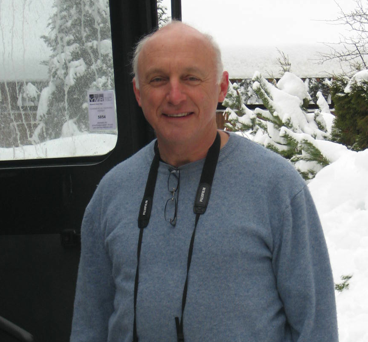 Farrell Segall dedicates his engineering career to the business of achieving goals through dreaming, innovating, design and implementation of new and alternative solutions to real-world problems and scenarios. Since relocating to the Kootenays in 2016 he has followed the activities of SWSS with interest to understand how ecological and environmental actions can be implemented to improve the conditions in and around the streams and rivers in the region.
Farrell Segall dedicates his engineering career to the business of achieving goals through dreaming, innovating, design and implementation of new and alternative solutions to real-world problems and scenarios. Since relocating to the Kootenays in 2016 he has followed the activities of SWSS with interest to understand how ecological and environmental actions can be implemented to improve the conditions in and around the streams and rivers in the region.
He served a term as an elected Councillor for the Village of Salmo from 2018 to 2022 during which time he gained first hand knowledge of the local administrative processes and legislative procedures involved in influencing watershed, forestry and land affairs in the region, province and federally.
Farrell lives off grid in the region and spends much time exploring the great outdoors kayaking, camping and hiking. As a SWSS Director he looks forward to the opportunities to ensure conservation and protection of earth’s resources.
In his spare time he conducts educational hands-on projects to youth locally and province wide. Other interests include Astronomy, Space Adventure and Amateur Radio.
